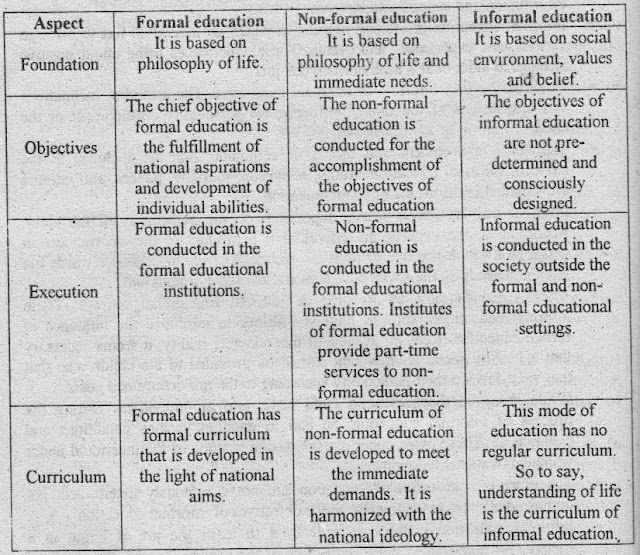Formal, informal, and non-formal education are three different types of education that can occur throughout a person's life. They are often distinguished by their level of structure, organization, and intentionality.
Formal education is the most structured and organized type of education. It takes place in schools, colleges, and universities, and it is typically led by qualified teachers. Formal education follows a set curriculum and is designed to lead to a degree or other qualification.
Informal education is less structured and organized than formal education. It can take place in a variety of settings, such as the home, the workplace, or the community. Informal education is often incidental, meaning that it is not the primary focus of the activity. For example, a child may learn about math by playing with blocks, or an adult may learn about a new culture by traveling.
Non-formal education is planned and structured, but it is not part of the formal education system. It is often offered by community organizations, businesses, or government agencies. Non-formal education can be used to teach specific skills or knowledge, or to help people develop their personal or professional development.
The three types of education can overlap and complement each other. For example, a student may learn about physics in a formal education setting, but they may also learn about physics informally by watching a documentary or reading a book.
Each type of education has its own advantages and disadvantages. Formal education can provide a strong foundation in academic knowledge, but it can also be expensive and time-consuming. Informal education can be more flexible and accessible, but it may not be as rigorous as formal education. Non-formal education can be a good way to learn specific skills or knowledge, but it may not be as comprehensive as formal education.
The best type of education for a particular person will depend on their individual needs and goals. However, all three types of education can play a valuable role in lifelong learning.
Here is a table that summarizes the key differences between formal, informal, and non-formal education:
| Type of education | Characteristics |
|---|---|
| Formal education | Structured, organized, led by qualified teachers. |
| Informal education | Less structured, organized, incidental. |
| Non-formal education | Planned, structured, but not part of the formal education system. |
I hope this helps! Let me know if you have any other questions





0 Comments:
Post a Comment
Note: Only a member of this blog may post a comment.